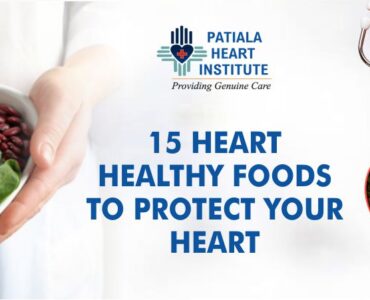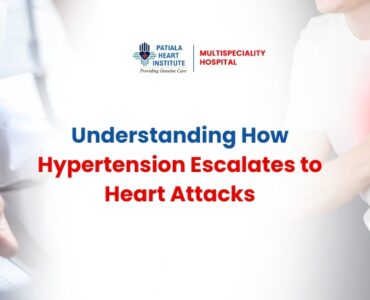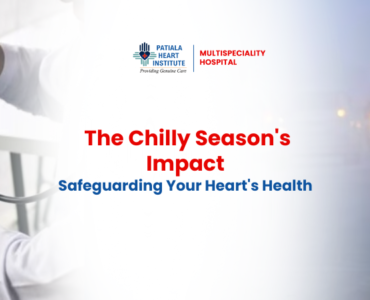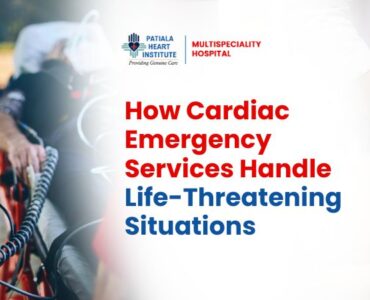In every 39 seconds, an adult dies from a heart attack or another cardiovascular disease.
If we dig deep into what causes these cardiovascular diseases, bad cholesterol can pose potential damage to your innocent heart. High cholesterol can be a threat to your overall heart health.
Before you get into the anatomy of how cholesterol works for your heart, you should first know what cholesterol is?
We all need cholesterol to stay healthy because every cell in our body uses it. It is defined as a waxy substance in your blood that builds new cells and vitamins, hormones, vitamin D, and digestive juices that help break fat in your diet.
But do you know that not all cholesterol is bad? There is a misconception among most people that cholesterol is bad, but it can’t be true in the case of all cholesterol. Cholesterol plays a vital role in the normal functioning of your body. In some cases, if the cholesterol levels are high, it can put you under the radar for serious heart complications.
Heart disease and high cholesterol are often linked together. Cholesterol travels in your body in mainly two forms:
High-density Lipoprotein [HDP] – Good Cholesterol
HDL [ High-density Lipoprotein] plays an important role in absorbing cholesterol and carrying it back to the liver. The liver then flushes it from your body. High levels of HDL can lower your risk of heart disease and strokes.
Low-density Lipoprotein [LDP] – Bad Cholesterol
Low-density Lipoprotein [ LDP] is defined as bad cholesterol. This cholesterol gets collected in the wall of your blood vessels, which can ultimately raise your chances of problems like heart attack and stroke.
High cholesterol levels in the bloodstream can build up and form plaque and clog your arteries. This further aggravates your risk of developing coronary artery disease.
High LDL cholesterols can make you more likely to have problems including:
- Coronary artery disease
- Peripheral artery disease
- Chest pain and heart attack
- Stroke
You may inherit high cholesterol, or it can be the result of an unhealthy lifestyle. In addition, certain factors can affect your cholesterol level. These factors are:
Heredity
There is a condition called familial hypercholesterolemia [FH] which can make you more prone to high levels of bad cholesterol. If any of your parents have this condition earlier, the chances are that you may also develop this condition.
Smoking
While smoking doesn’t directly cause high cholesterol, it is by itself a major proven risk for heart attacks and strokes. Those who have existing high LDL cholesterol issues should quit smoking.
Diet
Diet plays a crucial role in raising your cholesterol levels. Consuming much-saturated fats or trans fats can result in unhealthy cholesterol levels. Saturated fats are more commonly found in meats and full-fat dairy products. Trans-fats are often found in packed snacks. Eating too much of these fats can aggravate your cholesterol levels.
Age
High cholesterol is more common in people over 40. With age, your liver loses the ability to slow down LDL cholesterol. Therefore, aged people are more prone to develop high cholesterol. However, even children and youngsters can develop high cholesterol.
Obesity
Obese people are at a high risk of developing high cholesterol levels. Having a body mass index of 30 or greater can put you at risk of high cholesterol.
Cholesterol and heart diseases – Understanding the connection.
Most of us think that there is more or less a straight line between cholesterol and heart disease. However, high cholesterol levels can raise your risk of heart attacks or coronary artery disease. With high blood pressure, you can develop fatty acids in your blood vessels.
The fatty acids can make it difficult for blood to flow through your arteries. This can enhance the risk of heart attacks or strokes.
There can be certain complications that can occur due to high cholesterol levels. These conditions can put you at severe risk.
Some of the significant complications that can occur due to high cholesterol are:
Coronary artery disease
The main risk or complication associated with high cholesterol is coronary artery disease. Your blood cholesterol can raise your chances of having heart disease. If your cholesterol is too high, it can cause a build-up of plaque in coronary arteries.
High cholesterol can cause serious accumulation of cholesterol and other deposits on the wall of your arteries. These deposits can restrict blood flow and cause heart attack, stroke, or chest pain complications.
High blood pressure
High blood pressure is a severe complication that is linked to high cholesterol. When arteries become narrowed due to cholesterol plaque, the heart has to use a much stronger force to pump blood through it. As a result, your blood pressure gets abnormally high.
Peripheral arterial disease
High cholesterol is also linked with peripheral arterial disease. This refers to the disease of blood vessels that are outside the heart and brain. In this disease, fatty deposits build up along artery walls and affect blood circulation, mainly in arteries leading to the legs and feet.
Type 2 diabetes
Type 2 diabetes is another complication that is linked to high cholesterol as diabetes can affect different cholesterol levels. Even if blood sugar is under control, people with diabetes tend to have increased triglycerides, decreased high-density lipoprotein (HDL), and increased low-density lipoprotein (LDL). This increases the likelihood of developing atherosclerosis.
How to lower your cholesterol levels?
Keeping your cholesterol level in check is the first step to protecting your heart. Your doctor may suggest certain medications and can prepare an ideal plan to lower your cholesterol level and improve the odds of heart problems.
- Healthy diet: You should avoid eating things that raise your cholesterol levels. Avoid eating foods including saturated and trans fats.
- Weight loss: Losing weight and doing regular exercises can improve your cholesterol levels.
- Quitting smoking: Giving up smoking and drinking is an ideal way to protect your heart. If you are finding it difficult to quit smoking, you can meet a counselor for the same
Patiala Heart Institute: Best Cardiologist in Patiala
Patiala Heart Institute offers world-class heart care to all patients. We have the best cardiologist in Patiala to personally examine the patient’s condition and provide the most effective treatment plan.
Book an appointment today and get the most deserved heart care.
Frequentky Asked Question
Can cholesterol get back to normal?
Yes, cholesterol levels can get back to normal. It is possible to change cholesterol levels within weeks if you make lifestyle changes or take a healthy diet. Moreover, doing physical exercises can also improve your cholesterol levels.
Will losing weight lower cholesterol?
Yes, losing weight can lower your cholesterol levels. The obese people are at a greater risk of high cholesterol. In addition, weight loss helps reduce your LDL cholesterol levels and can improve your overall heart health.






